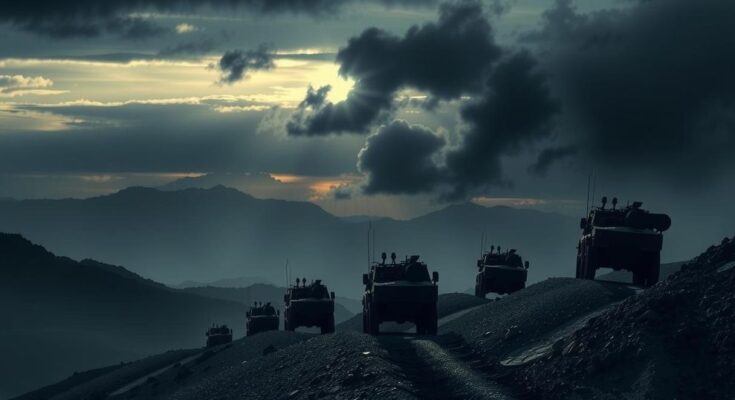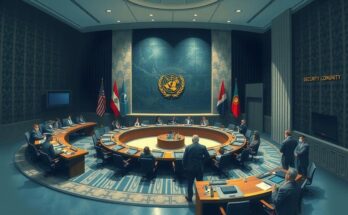The Rwanda-backed M23 armed group has vowed to advance towards Kinshasa after seizing Goma, escalating the DRC conflict. While Rwanda claims to combat groups linked to the genocide, it faces allegations of exploitation of mineral resources. The international community has urged for Rwanda’s withdrawal as humanitarian crises worsen due to the ongoing violence.
On Thursday, the Rwanda-supported M23 armed group announced its intention to advance towards Kinshasa, the capital of the Democratic Republic of Congo (DRC), following its recent capture of Goma in the North Kivu province. This escalation marks a significant development in a region plagued by longstanding conflicts among various armed factions.
The Rwandan government claims its involvement aims to eliminate groups connected to the 1994 genocide. However, Rwanda faces allegations of trying to exploit the DRC’s rich mineral resources used in electronics. Corneille Nangaa, the head of the M23 coalition, stated, “We will continue the march of liberation all the way to Kinshasa.”
Further, Nangaa indicated plans to restore basic utilities and create humanitarian corridors for displaced individuals in Goma. In response, Congolese President Felix Tshisekedi vowed to persist in the military fight against what he labels as terrorists and their backers.
The United Nations expressed serious concern regarding credible reports of M23’s southward movement from Goma towards Bukavu, which is the capital of South Kivu province. Accounts from local sources confirmed the advancement and seizure of two districts by M23 fighters.
Calls for Rwanda to withdraw its forces have arisen globally, with countries such as Angola, China, the European Union, and the United States echoing this demand. French Foreign Minister Jean-Noel Barrot met with Rwandan President Paul Kagame, who critiqued Tshisekedi’s leadership during an East African Community meeting.
Amid these tensions, Belgium suggested that the EU impose sanctions on Rwanda, potentially leveraging its agreements regarding mineral resources. The 16-nation Southern African Development Community announced plans for a special summit to discuss the crisis at hand.
Local repercussions have been severe, as Goma residents reported extreme shortages of essential supplies, stating, “There is nothing left to eat. Everything has been looted,” highlighting the urgent need for humanitarian aid in the region. Approximately half a million people have been displaced this month as the conflict continues to exacerbate an already critical humanitarian situation.
The DRC is notably wealthy in minerals like gold, cobalt, and diamonds—vital for the global electronics industry. Kinshasa has accused Rwanda of seeking to profit from these resources, a claim reinforced by UN experts who assert that Rwanda maintains a substantial military presence in the DRC, effectively controlling M23 operations.
The ongoing conflict in the DRC, particularly in the eastern regions, has a complex history involving multiple armed groups over decades. The M23 insurgency is one of these factions, claiming roots in the aftermath of the 1994 Rwandan genocide. The mineral wealth of the DRC has long been a point of contention, with external powers, including Rwanda, accused of meddling for economic gain. This situation has prompted international calls for intervention and negotiation to establish peace in the region.
The conflict involving the M23 group and its ambitions towards Kinshasa illustrates deep-seated issues in the DRC, highlighted by the struggle over mineral wealth and the humanitarian crisis impacting countless individuals. As both regional and global entities call for intervention, the path to resolution remains fraught with challenges. The international community continues to grapple with finding effective strategies to prevent further escalation and address the dire needs of those affected by the violence.
Original Source: www.wfxg.com




